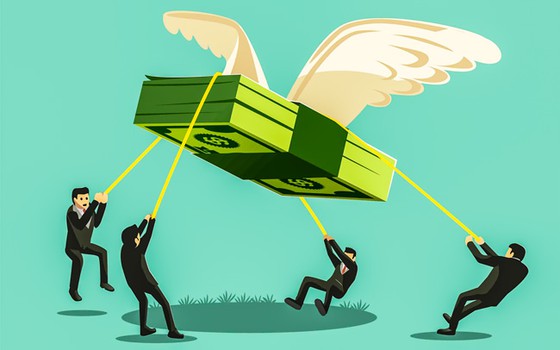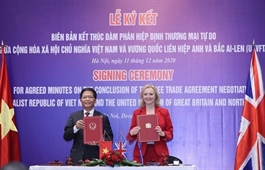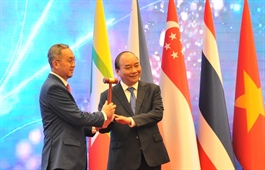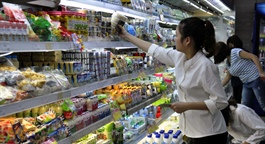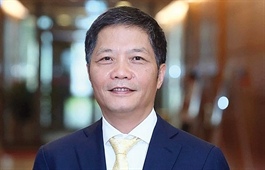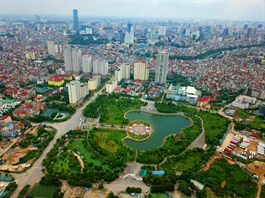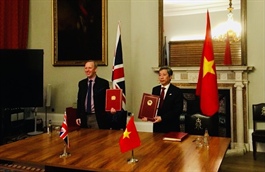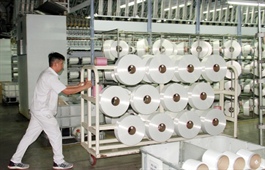Expectation of high inflation post Covid-19 pandemic
Expectation of high inflation post Covid-19 pandemic
Governments are already concerned of any post Covid-19 impact on inflation, especially those in rich developed nations where the rate of inflation has remained low for many consecutive years.
Illustrative photo.
|
eveloped nations where the rate of inflation has remained low for many consecutive years.
The development of the vaccine has raised hopes in the fight against the pandemic. Although many people think that the world will not totally recover from this pandemic until 2022, there are those who are much more optimistic in a revival of the economy in 2021.
Determining factors
Many economists have begun to question the constant flow of many kinds of stimulus and support packages being offered by governments meant to lend some relief in the current ongoing and uncertain conditions prevailing under the Covid-19 pandemic. Such large-scale bailout packages, plus massive purchase of government debt by central banks, have increased money supply significantly, but which may also serve as the main driver towards future inflation. Although there are also questions arising as to why similar bailout policies did not cause inflation soon after the global financial crisis in 2008.
The reason lies in a huge difference from the current context. After the financial crisis that began in 2008 ended, huge amounts of bad debts in banks limited ability to lend, which then led to credit scarcity. However, cash flow used to bail out offset the credit shortage in the market at that time and thereby impacted the blow of any inflation. In the current scenario, several businesses are receiving many preferential loans, which is overwhelming credit and creating a potential inflation risk in coming time.
Furthermore, due to strict regulation curbs on group movement, many people are facing a cash crunch and expenses for food, entertainment, and transport are more or less online. Financial experts believe that as soon as the economy revives once again after the vaccines are proved effective, then people will feel a great sense of liberation and rush to make purchases and spend money more wildly. Nonetheless, there will also be many goods and service suppliers who may not recover quickly enough to meet this sudden surge in demand, which will eventually lead to demand exceeding supply and that is when inflation will rise, or at least for a short period of time.
According to Mr. Charles Goodhart, a former member of the Bank of England's Monetary Policy Committee, even if governments of rich countries want to actively curb risk of inflation by reversing anti-Covid policies, such as withdrawing bailout packages, it will not be feasible. The reason is that governments are under pressure not to take such risky measures too soon or too quickly, so as to avoid causing too much damage to the economy.
Low inflation expectation
According to the New Keynesian theory, two important determinants of future inflation are expectation of inflation and the labor market. At the moment, neither of these two factors are showing any sign that inflation will likely explode on us. Exploration results and financial market developments all reflect low inflation expectations. The US stock market still increased steadily, despite the number of people hospitalized for Covid-19 increasing by the day.
Even Goldman Sachs, one of the most optimistic banks on the prospects of economic recovery in the aftermath of the pandemic, still forecasts that it will not be until 2024 that unemployment rate will drop below 4%. The number of unemployed people currently under the Covid-19 pandemic is so high that employers do not want to raise wages, thereby limiting the impact on inflation. For workers who are unemployed, it means losing their source of income for their daily livelihood. People in this group hardly have enough money for even their very basic personal needs, even after the economy finally recovers. This also questions the idea of the possibility of a spending boom as many think may occur post pandemic.
According to experts Goodhart and Pradhan, the key factor holding inflation in rich countries for many years was globalization. Multinational corporations are not under pressure to raise wages of domestic workers. They solved this problem by setting up overseas production bases where labor cost is much cheaper, therefore the price structure is kept stable. This is especially true in Japan, where deflation has remained a problem since the 1990s, and the country with its many corporations invested elsewhere in many countries around the world, including in Vietnam.
Likely risk of inflation
Generally speaking, the risk of a post Covid-19 inflation exploding in major economies is very low, but by no means unlikely, especially in the short term. However, many economists are warning of the risk of persistent inflation. Economists at Morgan Stanley predict inflation will reach the 2% target set by the US Federal Reserve (Fed) by the end of 2021, and then continue to rise. Some other pessimist minds say that if the central bank is subjective, a period of persistent inflation like in the 1970s can certainly reoccur. This risk is compounded by the fact that inflation in rich countries has been at a low level for decades.
The prolonged state of stability has led the public, even policymakers, into a state of oblivion and who now believe that inflation is a far cry and will not happen. This is because these people have not suffered the period of time when inflation had hit hard, and hence they remain subjective, not objective. Vietnam now needs to study the possibilities of best post Covid-19 economic growth, and plan appropriate policies for coming years in order to bring stability in people's lives and avoid any serious repercussions and unpleasant consequences.


